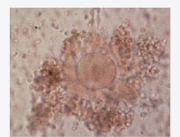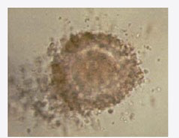The MUHC Reproductive Centre is a pioneer in the application of In Vitro Maturation treatment. With in vitro maturation treatment no hormone therapy is taken to produce large numbers of mature eggs at egg retrieval; instead, immature oocytes are retrieved from the ovary and matured in the laboratory for 24-48 hours. Once the eggs have matured, fertilization is performed and then, one fertilized egg is transferred to the uterus as in conventional treatment.
We reported the first IVM baby birth in Canada in 1999 and today we have one of the highest pregnancy rates in the world, with more than 100 IVM babies born from our program.
IVM treatment is a treatment option for women who want to avoid the inconvenience, cost and risks of ovarian stimulation. In general, the best candidates for IVM are women under the age of 38 who have a large number of ovarian follicles seen on ultrasound, and also, women who are at increased risk of OHSS or have indeed had OHSS before.IVM treatment is very easy and requires less time commitment compared to conventional IVF. Full treatment consists of two or three of ultrasounds followed by an injection of HCG (Human Chorionic Gonadotropin) to mature the eggs 38 hours prior to egg retrieval.


Following egg retrieval, immature eggs (see illustration) are cultured in a maturation medium for 24 to 48 hours and then mature eggs (not all eggs will mature) will be fertilized using the ICSI technique. Transfer is scheduled 2-5 days after fertilization.
[collapsed title="Medications taken following IVM egg retrieval"]
Medications
As with conventional IVF treatment, medications are given following egg retrieval in order to make implantation easier, and to support the endometrium for pregnancy. Support of pregnancy is especially important in IVM treatment because the follicles that yield eggs (and would normally support pregnancy) are immature in IVM treatment. Medications taken following IVM egg retrieval include:
Estrogen
Estrogen helps develop and support the endometrium (lining of the uterus). Estrogen is taken as an oral medication on a daily basis through the first trimester of pregnancy. Side effects are rare but may include breast tenderness, mood changes, fatigue.
Progesterone
Progesterone plays an important role in supporting the endometrium in pregnancy. Progesterone is taken on a daily basis by intramuscular injection or by vaginal suppository through the first trimester of pregnancy. Side effects are rare but include mood changes and reactions at the site of injection.
Medrol
Medrol is a steroid that has been shown to help prepare the endometrium for implantation. Medrol is taken by mouth and is begun prior to embryo transfer. Medrol is taken for a short duration and has not been associated with side effects.
Doxycycline
Doxycycline is an antibiotic that is begun prior to embryo transfer, to help create a favourable environment for implantation. Doxycycline is taken orally.
[/collapsed]
[collapsed title="Embryo Transfer and Pregnancy Testing"]
Embryo Transfer
Embryo transfer takes place two, three, or five days after the fertilization of mature oocytes depending on their development (or growth).
The Clinic is required to follow Quebec law in determining the number of embryos that can be transferred at each transfer. In most cases, this will be a single embryo. In special circumstances, such as in an older patient or after many failed attempts, the physician may decide to transfer more than one embryo, to a maximum of three. The goal is to maximize the chances of achieving a pregnancy without increasing too much the risk of having a multiple pregnancy (a pregnancy with more than one baby).
Patients should continue their medication until the pregnancy blood test is done.
Pregnancy Testing
Following the embryo transfer, patients should continue their medication until the pregnancy test (blood test) is scheduled 16 days after the egg retrieval. When the pregnancy test is positive, patients are advised to continue their medication until twelve weeks of pregnancy (ten weeks after embryo transfer).
An ultrasound scan is usually scheduled two weeks after a positive pregnancy test to confirm a healthy pregnancy. An ultrasound scan is safe to perform in early pregnancy. Once the pregnancy is confirmed patients are referred to their obstetrician for follow up during pregnancy.
[/collapsed]
